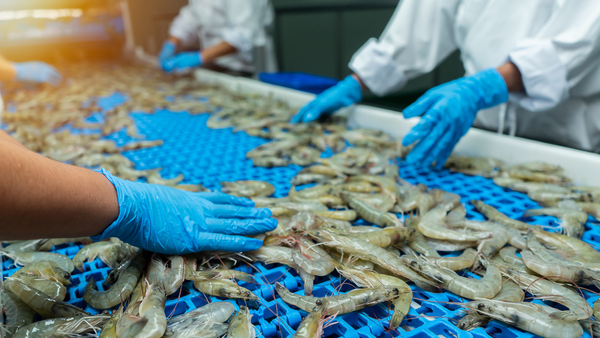US Ban on Pre-Purchased Russian Seafood Delayed 3 Months, Here's Why
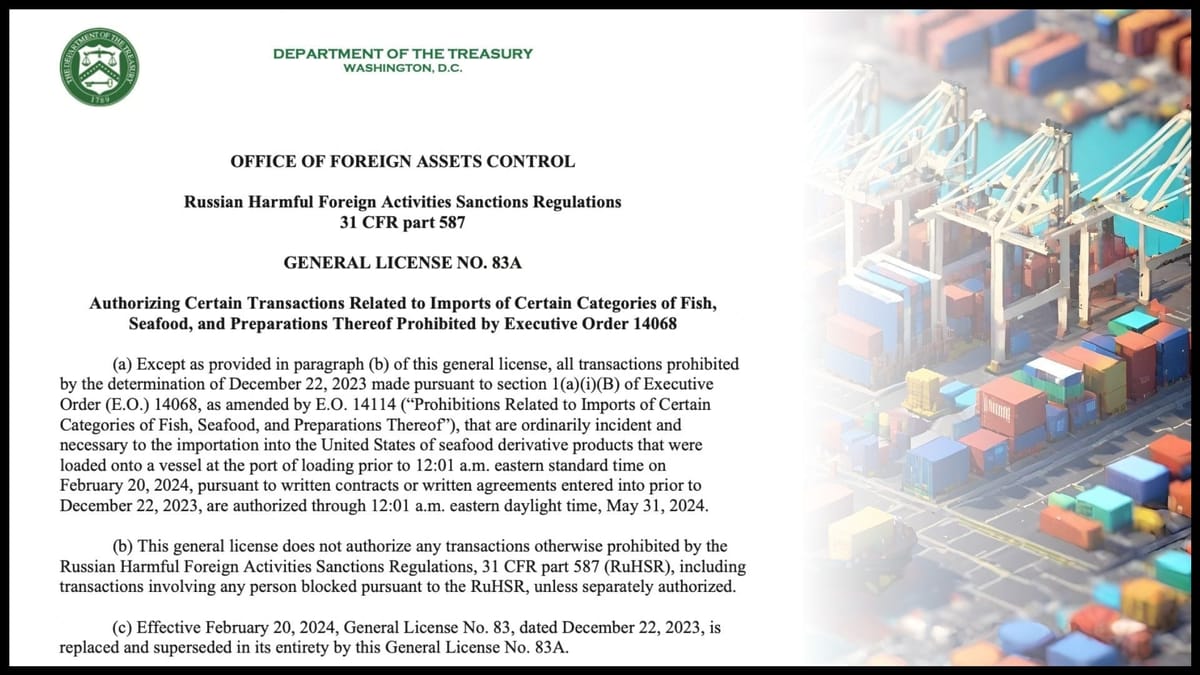
Last December, President Biden expanded upon a 2022 Executive Order banning select US imports from Russia–including seafood–to now encompass Russian-origin exports to the US from any country. Given their shared border and extensive processing capacity China has frequently served as an intermediary for Russian seafood en route to the US, but there are others. The revision came with an allowance for pre-purchased seafood to enter the US that was due to expire at midnight but in its final hours was extended to May 31.
Given increasing calls for country, species, vessel and even fishery-specific seafood import bans, it is fair to assume that managing an increasing number of trade sanctions like this one will likely be a part of our future, alongside data-heavy supply chain regulations like FSMA and SIMP. This isn't a major policy development, but it is an opportunity to learn lessons that could ease the implementation of future trade bans so we've prepared a closer look. Plus, the through-line from global news to seafood trade regulations is rarely this direct.
General Licenses 83 and 83a
The US Department of Treasury has a key role in interpreting Presidential directives, so when Executive Order 14114 was announced on December 22, 2023 the Office of Foreign Assets Control (OFAC) issued two companion documents: one on the scope of seafood covered under this ban and the other–General License 83–on timing. The General License 83 authorized imports of Russian-origin seafood purchased before the Executive Order was signed to enter the US until February 21, 2024. By all appearances General License 83 has worked as intended; importers provide US Customs and Border Protection with evidence that their goods were purchased before the deadline upon request, and when the License does not apply (e.g. goods purchased after December 22) importers include a self-certification letter attesting that product is not Russian-origin as part of their import documentation.
Seafood purchases can be made well before shipment begins, and sending cargo across the world can take weeks if not more. General License 83 was a well-intentioned effort to not penalize US industry for purchasing goods that were not yet banned. OFAC's replacement of General License 83 with 83a extends the import deadline to May 31, 2024. While not covered extensively in the press, there had been concerns that the initial deadline was not enough time to allow for import of exempted goods. Here's why:
Terror in the Red Sea
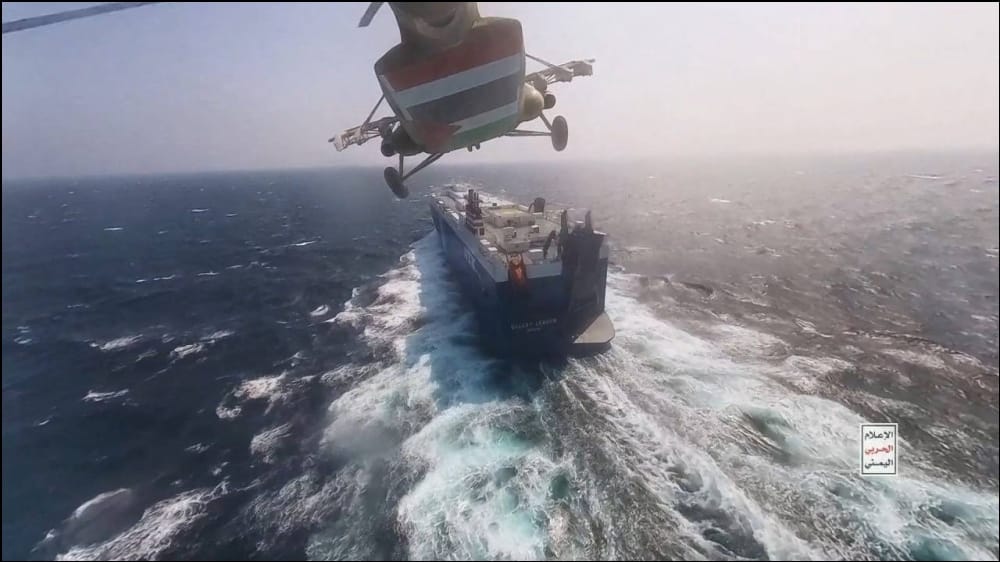
Roughly 12% of all global trade passes through the Red Sea, which connects the Indian Ocean to the Mediterranean. It has two bottlenecks: Bab el-Mandeb at one end and the Suez Canal at the other. Houthi rebel attacks on ships transiting through the Red Sea began in November 2023, and the ongoing conflict has significantly disrupted global shipping. Some companies are rerouting around Africa (see below); while those continuing to cross the Red Sea face attack at worst and "war risk" insurance rates that cost hundreds of thousands of dollars more per trip at best. Extensive multinational military operations have led to a recent decline in attacks, though many shippers continue to avoid the area.
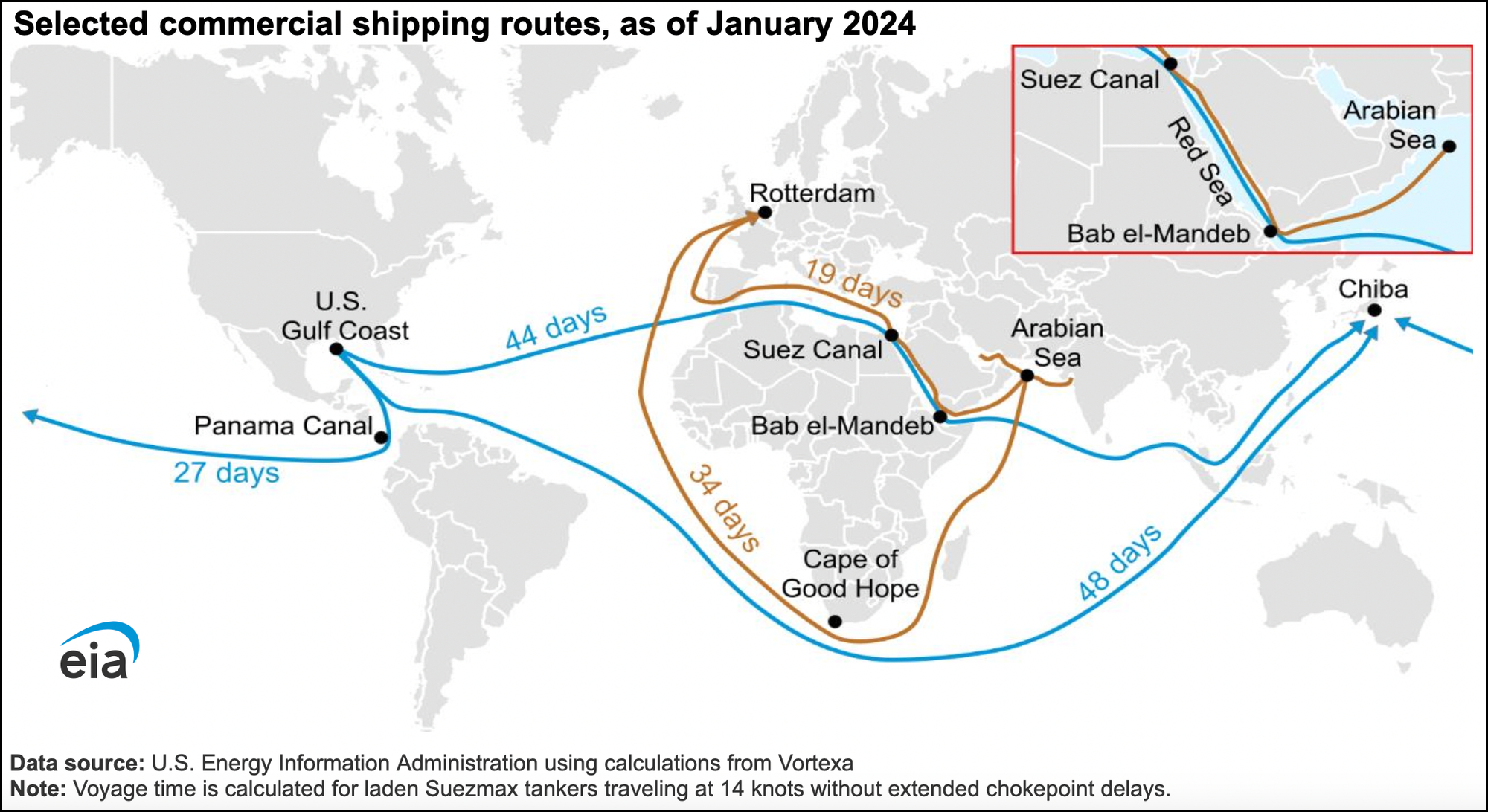
Drought Constricting the Panama Canal
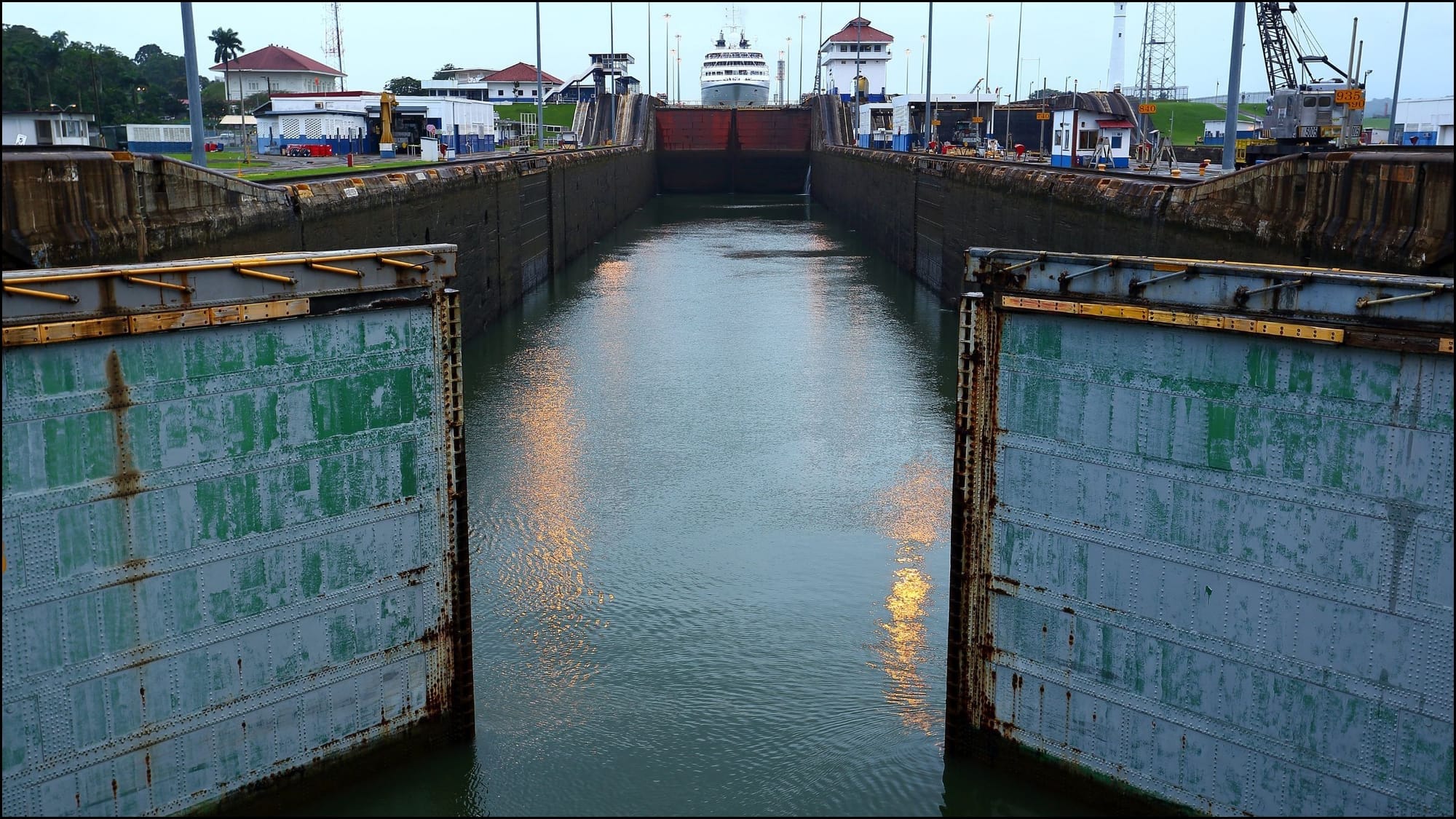
Cargo ships that need to transit between the Atlantic and Pacific have two options: spend 8-10 hours crossing the 50-mile Panama Canal or several weeks circumnavigating South America. While the Panama Canal remains comparatively quick, availability is in short supply. This is because the 50 million gallons of fresh water required to fill the locks of the Panama Canal for every ship that crosses is sourced from manmade Gatún Lake, which has been in a serious drought since early 2023 (see below). Gatún Lake is at its lowest level in decades, and as a result authorities have had to cut ship crossings by 36% and impose new limitations on ship dimensions. The number of ships crossing the Panama Canal in recent months has been cut to 36, then 24, and this month to just 18 ships per day. Dozens of vessels have had to wait 1-2 weeks for their turn even if their crossing was booked a year in advance. This also means that cargo ships held up at this crossing are unavailable to make other deliveries. Some carriers have reportedly paid $4 million to jump the line.
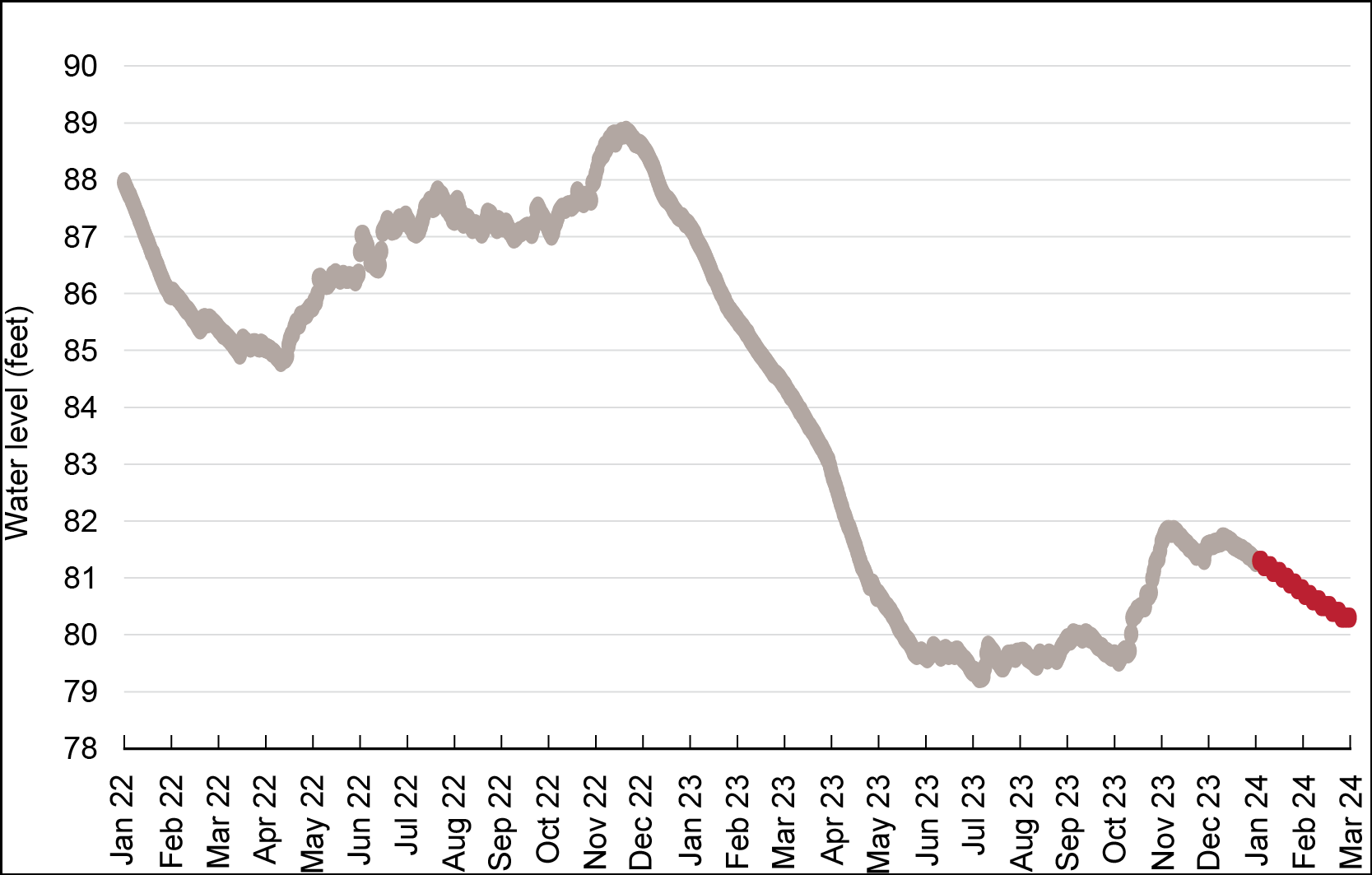
These shipping bottlenecks have cumulative effects on global supply chains that can be hard to tease apart, but suffice to say that in the last two months freight rates for US shippers have increased by 150%+. Thankfully, these costs are starting to come down. What will the next trade ban look like? It is impossible to say, but given the need to extend this import deadline from 2 to 5 months and the fact that a similar situation happened with the initial 2022 Executive Order implementation, we suggest OFAC start with a 5-month implementation period and extend from there as warranted.
As a software provider, we support the busy seafood industry with time-saving, actionable insights and tools to ease the burden of compliance with an ever-growing array of complex import regulations. While 11th-hour policymaking is never ideal, we are making the necessary adjustments to ensure our customers are aware and can take advantage of this change. If tracking and compliance with regulations is a concern for you, visit Goldfish.io to learn more about how we can help.
Further Reading
Red Sea attacks: What trade experts are saying about the shipping disruptions, World Economic Forum
Drought at the Panama Canal delays energy shipments, increasing shipping costs, US Energy Information Association
How have Red Sea attacks by Yemen’s Houthi fighters affected companies?, Al Jazeera





